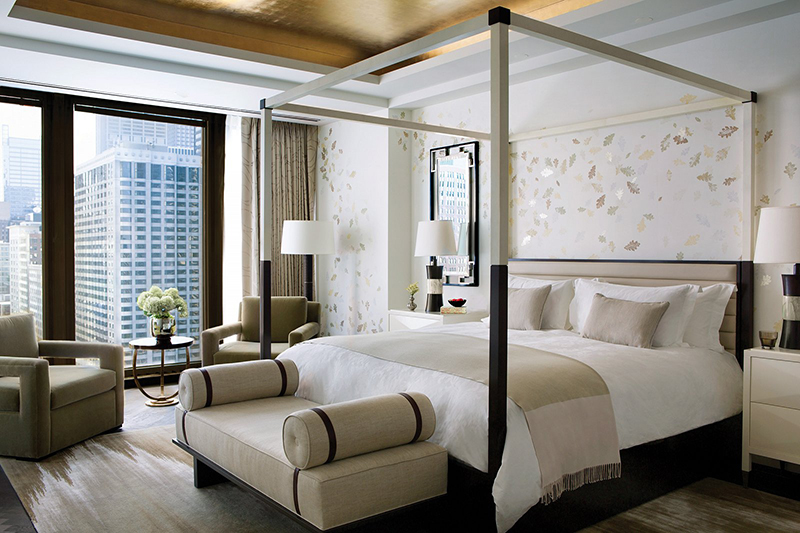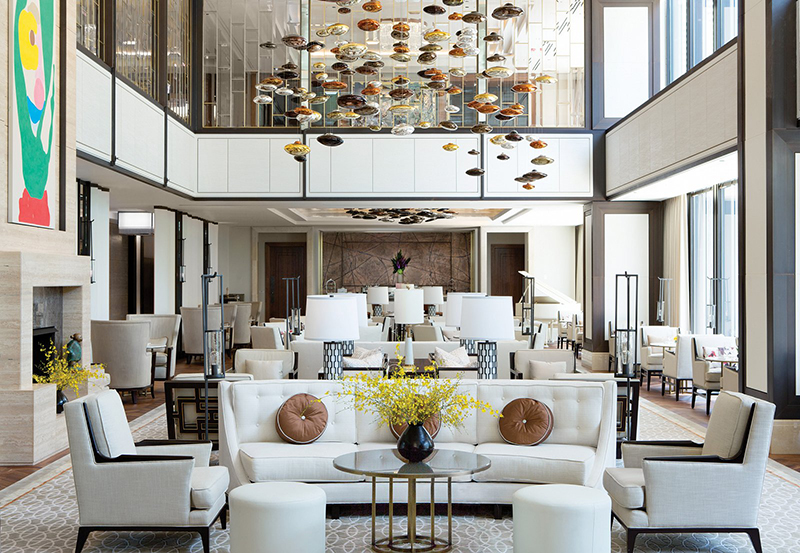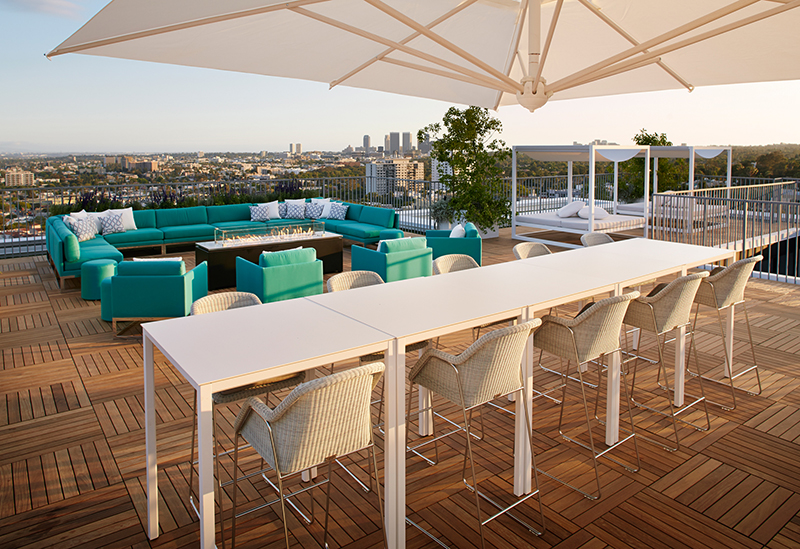Designer Q&A: Fiona Thompson, Principal for Richmond International
Richmond International have designed some of the most celebrated hotels around the world and this year they celebrate their 50th anniversary. As leading experts in the hospitality sector and to commemorate this anniversary we spoke with their Principal designer, Fiona Thompson. 
Fiona has worked for Richmond International for 25 years and has been part of many award-winning projects around the world. Being the well-travelled lady that she is, she has a deep understanding of different cultures which means that she can translate any clients’ desires with ease, globally.
So Fiona, Congratulations to RI for reaching their 50th year, what has been your favourite project in your time with the company so far?
Working for Richmond International for the past 25 years has meant I have had the pleasure of working on a number of very exciting projects over the years which makes this a difficult question to answer. If I had to pick a few of my highlights, this would have to include the Four Seasons Hotel Gresham Palace Budapest, The Langham Chicago, The Penthouse Suites at The Cosmopolitan and The London West Hollywood. Throughout my career, and working on projects such as these, I’ve been lucky enough to travel extensively, work with some great teams and on some incredible buildings around the world all of which have provided constant inspiration, influencing our design. Can you tell us about your time at RI and how you got where you are today as Design Principal?
Can you tell us about your time at RI and how you got where you are today as Design Principal?
I started as the Studio Manager at Richmond, before progressing to Design Director where I was given complete responsibility for all creative work from the Studio. It was 6 years ago that I came to the position that I am now, as the Principal, following Trevor Cotterell’s move to Areen Design. Having been with the company for so many years, I’ve been fully involved with all of our projects, seeing them develop over the years.
What is your approach when designing for the hospitality sector?
Before we start a project at Richmond, the key is to really try to understand what the project is all about in terms of its location, the hotel operator, the client, the site conditions and finally, any constraints that may present themselves throughout the project. Through our years of experience as hospitality interior specialists we have, as a team, a thorough understanding as to how a hotel functions and a firm knowledge of the adjacency of spaces so when we embark on a project, we are able to fully focus our efforts on the creative aspects of design.
I think the key is staying interested in your work and enjoying the challenge that every new brief inevitably brings. We like to draw upon a variety of influences within our designs, which often mean our schemes take inspiration from the worlds of music, fashion and the arts. Finally, Richmond endeavour to create buildings which last and can be adapted over the years, so the quality of design, materials we use and detailing we incorporate into our work ensure there is a depth and longevity to the design, are always factors we have to be mindful of. How has this changed over the last 5 years?
How has this changed over the last 5 years?
The hospitality design industry is constantly changing and evolving, even down to the way in which people use hospitality spaces. One particular thing we have noticed here at Richmond is the increase in experiential design, which has been seen as guests increasingly come to expect and want a smart, personalised service with that feeling of being individual and recognised.
There is a huge trend of guests wanting more ‘living spaces’ when they are away. What impact do you think the trend of Apartments/ AirBnB style properties has had on the industry?
We have seen an increase in demand for creating spaces that feel more residential, be it because guests want larger rooms, or because they are planning a longer stay. Space is a luxury, whether it be in floor area, height or window space. With the trend of apartments/ Airbnb style properties we have certainly seen an increase in the desire for a more individual approach to space to reflect these cultural shifts and changing patterns of behaviour.
However, what will always remain important is the community of a hotel, is that people like to meet and have access to social environments, which is something that only hotels can create and something that Airbnb cannot replace. A hotel is very much a lifestyle rather than simply a room to stay in. There has been a shift in how people are using hotel communal spaces now. Both guests and non-guests use them for work, café stops, eating in the restaurants and entertaining…How important is the Hotel Lobby?
There has been a shift in how people are using hotel communal spaces now. Both guests and non-guests use them for work, café stops, eating in the restaurants and entertaining…How important is the Hotel Lobby?
It is important that all spaces in the hotel become an intrinsic part of the guest experience. Spaces are not pre-prescribed as to how people should use them and often guests use spaces for a multitude of uses. It is true that all hotels need a heart and once upon a time this would have been the Lobby although today this could quite equally be another space within the hotel, not least because the way in which hotel Lobby’s are used are changing. In recent years we have seen hotels favouring technology at check in, which means that one day the typical Hotel Lobby may no longer exist.
Have you got any exciting hospitality projects in the pipeline that you’re able to share with us?
It has been a busy year at Richmond, and next year is looking even more so! We’ve just completed a beautiful project in Ireland, Adare Manor, as well as the Ritz Carlton Hotel in Astana. 2018 will see the completion of a number of other projects, which I can’t wait to share with everyone. So could we be seeing the end to the classic hotel lobby? Let us know your thoughts in the comments below or you can tweet us @DesignInsider1
So could we be seeing the end to the classic hotel lobby? Let us know your thoughts in the comments below or you can tweet us @DesignInsider1
Contact Richmond International




